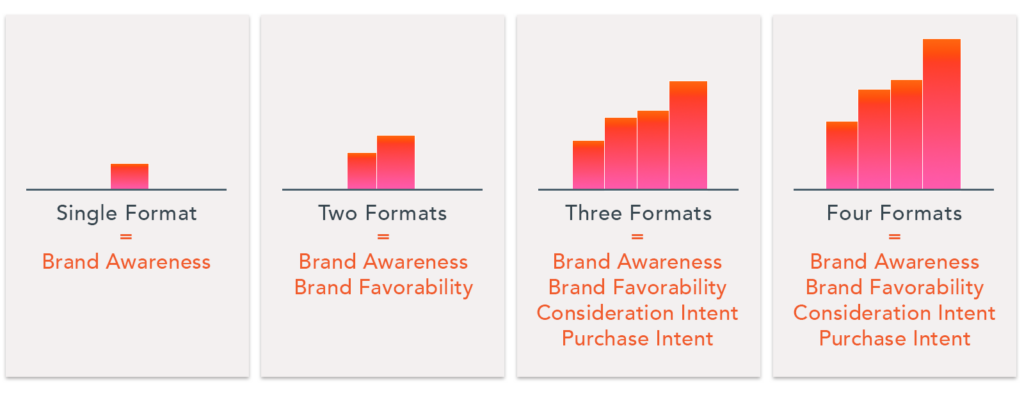Avoid Funnel Vision, Find The Right Fix for Your Product Mix

Authored by: Evon Hung, Product Researcher at TripleLift
As people continue to cut the cord and spend more time with streaming services, you would expect that advertising agencies would put their money where audiences are. Key word: expect.
Technology and media are advancing faster than most people hit the “skip intro” button at the beginning of an episode of The Office. Brands grasp at the tailends of consumer trends hoping for a taste of the next big wave without really understanding what that fully entails. Agencies industry-wide are planning to grow digital advertising spend on banner ads at the same rate as video spend, with notable increases in CTV technology. TripleLift’s brand partners are aligned with plans to purchase an average of 3 ad formats in the next year. Did someone say omnichannel? But a deeper dive into industry-wide attitudes toward innovative platforms like CTV reveals that spend in this area is much smaller than those for traditional ad formats, suggesting that companies are giving new, emerging ad formats only a skeptical glance for the next 5-10 years. But if brands are looking to keep up with current trends, why are they passing up this golden opportunity?
The reality is that brands are hesitant to employ strategies they see as “risky”. According to TripleLift’s research, only 50% of marketers plan to increase the number of ad products they activate, primarily due to the fear of unknown performance. But this conservative approach unnecessarily limits a brand’s performance and growth potential. Imagine if Michael Scott was too afraid to leave Dunder Mifflin. Sure, he’d still be regional manager with a nice condo in Scranton, PA and a fun neon beer sign, but would he have reached his full potential? Probably not.
Let’s take a look at a breakdown:

- A brand chooses to run a campaign with a single ad format, let’s say banner ads. By running a brand lift study, we conclude that the banner ads are effective at generating a strong lift in lower funnel metrics.
- The same brand runs a campaign that splits its budget across four formats: in-feed native, banner ads, and in-stream video/CTV spots. The campaign still delivers lifts on lower funnel, but also statistically significant increases for brand awareness and favorability. By implementing an omnichannel approach (including formats that are relatively new), the campaign was more successful at targeting the full funnel mix efficiently and effectively.
And this is just one example of single vs multi-format performance: choosing to diversify budgets across multiple ad formats leads to more impactful results across the purchase funnel. Conservative, single ad format strategies may lead to strong lifts, but the downside? Brand stagnancy.
Consumers are spending more of their time with new media like digital video and branded content, and their trust in advertisements that run in these spaces steadily grows in parallel. As the industry continues to focus on emerging products like CTV, what was previously seen as risky will soon become the norm. They say the early bird gets the worm, and this is especially true in the realm of tech adoption. As the great Michael Scott once said, “I’m an early bird and a night owl. So I’m wise and I have worms.”
At TripleLift Research, we understand that entering new, untouched territory feels risky. Despite perceived challenges that come with new ad formats like poor ad inventory scale or lack of audience targeting, activating a mix of products into your long term strategy will actually minimize potential brand stagnancy while optimizing performance. We’re confident that this “risk” is really just an opportunity and worth every penny. Advertisers wise enough to activate the right product mix can look forward to many, many worms.
The post Avoid Funnel Vision, Find The Right Fix for Your Product Mix appeared first on TripleLift.

